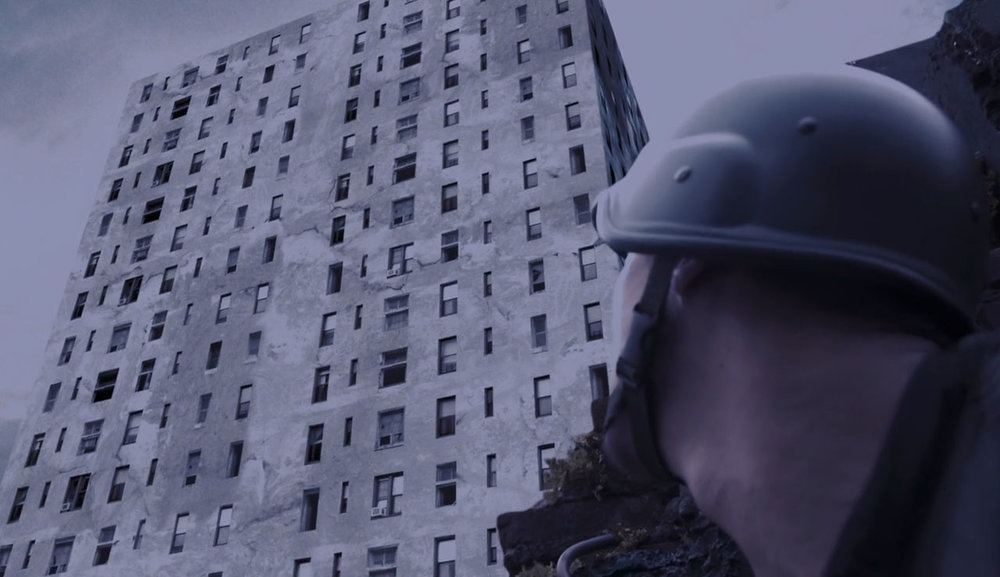The Raid ends with the remnants of the two parties—a Jakarta drug cartel and a special task force—parting ways, with a still camera splitting the two and driving home the incompatibility of the two lifestyles. There’s something a bit poetic and inevitable about the moralizing division, and it cuts even deeper with a brother on each side of the camera’s axis.
The main brother, Rama, is played by the now-bonafide action luminary Iko Uwais. He plays a rookie officer on the task force sent to raid the building owned and operated by cartel leader Tama (Ray Sahetapy). The objective is simple: fight to the top floor, find Tama, and kill or capture him. And with a few complicators thrown in the mix—like dirty cops, do-good civilians, and familial loyalty—the premise enfranchises some of the best action of the century.
Like almost every Jackie Chan flick, every household item, whether it be a chair or a piece of a lightbulb, is something to be wielded for violence; like a Bruce Lee (or, even better, Tony Jaa) film, every blow is meant to maim, emasculate, or murder; and, like a John Woo film, the guns become swords—extensions of the body, used like a punch carrying more finality with it. The one-building production forces the action into close quarters and gives clear and physical geographical goals to each violent encounter: to get from one end of the hall to the other or from one floor to the next without being killed. Since ammunition is a limited resource, this calls for some spectacular use of pencak silat, the Indonesian family of martial arts. The raiding squad fights (and, in one of the film’s best scenes, hides) by any and all means to preserve the negative space between them and the gang’s thugs. Rama and the other officers’ movement to the top floor, with every mark of vertical progression, then earns the same jubilation as does a well-done overture.
The other brother, Andi (Donny Alamsyah), condemns himself like one of famed author Thomas Pynchon’s Preterites, a term the writer uses to describe those God passes over when he chooses a few for salvation. They are condemned and they know it…salvation, desired or not, is not for them to decide but for the designers of fate itself. In this case, director Gareth Evans, a Welsh man living in Jakarta at the time of filming, is the creator of destinies. I don’t know of another term that explains the poetically unsatisfying ending in which Tama remains with the remainder of his gang as they await the police reinforcements. His redemption comes from a place of condemnation. The camera pushing the brothers away feels predestined.
Condemned in a different way, Wahyu (Pierre Gruno), the elder lieutenant who arranged the whole raid in the first place, “is not there to do any good,” as we are twice told. He and his white hair look misplaced from his first appearance, arriving at the soon-to-be raided building before the rest of the elite squad. My first time watching the film, I almost laughed to myself: “there’s no way this grunting old man can fight toe-to-toe with the likes of Uwais.” And I was right, he doesn’t really. But he comes to symbolize Evans’s apparent repulsion by the gerontocracy.
The old men in charge, heroic or vile, must fall in The Raid. And if you can’t cheer for that, I don’t want to be your friend.
The Raid: Redemption
2011
dir. Gareth Evans
101 min.
Screens Friday, 6/2, 11:59pm @ Coolidge Corner Theatre
Part of the month-long series: 1 vs. All


